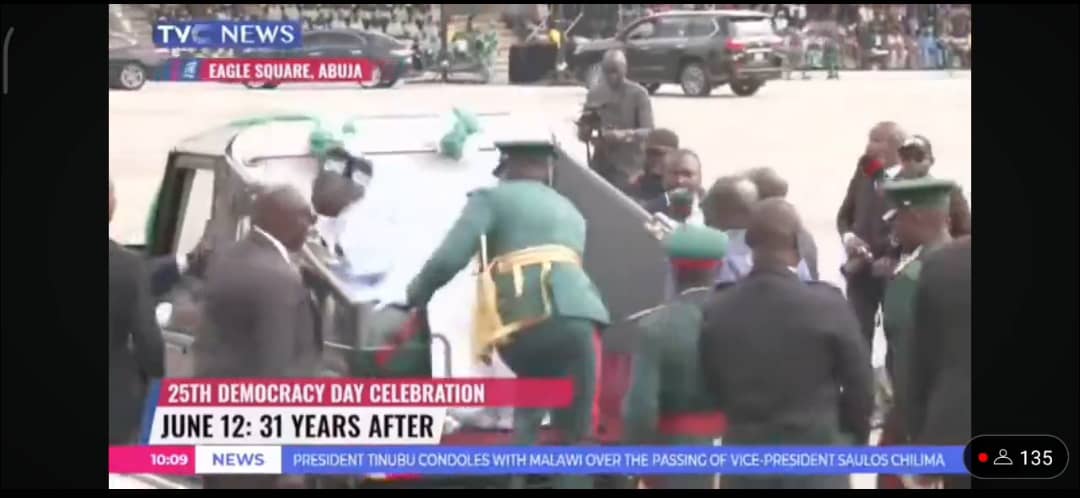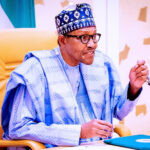“The lizard that jumped from a high Iroko tree to the ground said he would praise himself if no one else did” – Chinua Achebe
On October 1, 2005, our father, Alao Aka-Bashorun, passed away at his home in Gbagada, Lagos. He would have turned 75 years old in December later that year. Shortly after his passing was made public, tributes began pouring in from across the country and beyond. One of the first calls of condolences my mother received was from His excellency, the Governor of Lagos, Asiwaju Bola Ahmed Tinubu. He followed it with a public tribute and the condolence book was signed thus:
“You were a source of inspiration to your generation, you were a dogged fighter for TRUTH, JUSTICE, FAIRNESS and EQUALITY in your nation. You shall be sorely missed”⁃ Bola A. Tinubu, Lagos State Governor.
He didn’t stop there. At the condolence visit to my mother, he was alarmed at the poor state of the road leading to the house and felt it would discourage visitors from coming to the house to pay their condolences.
- Letters from a ‘dusty’ inbox
- This miracle plant will save Northern Nigeria from insecurity, farmer-herder clashes, desertification and improve our milk production
He promised to do something about it. The next day saw workers begin road repairs of all roads from the highway leading to the house.
At the old man’s lying in state, held at the Nigeria Law School, I gave the vote of thanks for the family. Our father had been sick for several years, the onset of which was traced to that fateful day in 1996. I thanked everyone I could remember and those I couldn’t for supporting him and the family throughout those difficult years for the family.
One of the special mentions was that of the governor’s unwavering support for my father’s medical expenses, at home and abroad. 1st class flights for my parents to seek medical treatment from specialists in London, Frankfurt and New York City. All expenses paid, out of the public eye.
When the family requested that we should respond to the absence of his name during the President’s June 12 dinner speech, it was not because we were lacking in recognition of our father’s contribution to the actualisation of democracy in Nigeria and June 12, in particular. He wouldn’t have wanted us to seek recognition but he would have wanted us to set the record straight with anything attached to his name. And June 12, my fellow Nigerians, brothers and sisters, comrades and friends, like so many notable noble Nigerians, is inextricably connected to his name. To list his contributions and commitments to democracy and June 12 will take more time and space for my allotted time and space for this essay and medium.
Where to start? His conviction of G.O.K Ajayi SAN, to join him and mount the legal defense of Chief M.K.O Abiola, the widely acclaimed winner of June 12, at his trial for treason? His public warnings to the nation and to foreign governments, years prior to the elections, that the Babangida Junta government was not the purported mid-wife to democracy in Nigeria and there was a “Hidden agenda” afoot to manipulate the elections?
How about his years in exile? Having had to leave Nigeria with a passport issued by the United Nations after the People’s Chambers (his law office) had been raided, sealed off and his Nigerian passport seized? His role as a leading member of the Human Rights movement to take the case of Nigeria’s human rights abuses to The United Kingdom and the United States?
September 6, 1990, a day that should have its rightful place in the history of Nigeria’s democratic infamy. The date should go down as the first attempt to strive for better, coherent national debate through national conferences. It was the date the Sovereign National Conference was to kickoff at the National Theatre after he had successfully campaigned and organised civil societies in 1989 to establish a National conference. Unfortunately, the conference was disrupted by the Babangida junta.
His unwavering support of Mrs Kudirat Abiola’s resolve, commitment and determination to see the actualization of her husband’s mandate?
The omission of his name at a dinner speech notwithstanding, history has been kind to his legacy. Associations like the Ikeja Branch of the Nigerian Bar Association who have held a widely acclaimed annual lecture since April 29, 2010, in his name as Bar leader and incomparable activist have lived up to the creed; “the labour of our heroes past, shall never be in vain” and are doing their part so his name and achievements are not overlooked at the dinner table.
On June 4, 1996, Alao Aka-Bashorun was one of the first people to see Kudirat Abiola’s bullet-ridden body at the hospital. She had been on her way to pick him up for a meeting. The shock was too much to bear and he broke down at the scene and would never fully recover his memory again. Such was the price of democracy, his price to pay for democracy, in our beloved country, Nigeria.
Dipo H. Aka-Bashorun wrote from Lawrenceville, New Jersey

 Join Daily Trust WhatsApp Community For Quick Access To News and Happenings Around You.
Join Daily Trust WhatsApp Community For Quick Access To News and Happenings Around You.